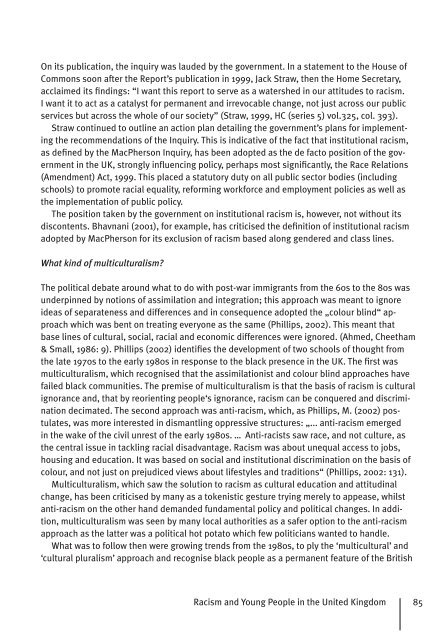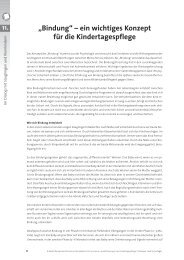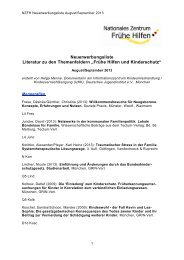Prevention of Right-Wing Extremism, Xenophobia and Racism in ...
Prevention of Right-Wing Extremism, Xenophobia and Racism in ...
Prevention of Right-Wing Extremism, Xenophobia and Racism in ...
Create successful ePaper yourself
Turn your PDF publications into a flip-book with our unique Google optimized e-Paper software.
On its publication, the <strong>in</strong>quiry was lauded by the government. In a statement to the House <strong>of</strong><br />
Commons soon after the the Report’s publication <strong>in</strong> 1999, Jack Straw, then the Home Secretary,<br />
acclaimed its fi nd<strong>in</strong>gs: “I want this report to serve as a watershed <strong>in</strong> our attitudes to racism.<br />
I want it to act as a catalyst for permanent <strong>and</strong> irrevocable change, not just across our public<br />
services but across the whole <strong>of</strong> our society” (Straw, 1999, HC (series 5) vol.325, col. 393).<br />
Straw cont<strong>in</strong>ued to outl<strong>in</strong>e an action plan detail<strong>in</strong>g the government’s plans for implementimplement-<br />
<strong>in</strong>g the recommendations <strong>of</strong> the Inquiry. This is <strong>in</strong>dicative <strong>of</strong> the fact that <strong>in</strong>stitutional racism,<br />
as defi ned by the MacPherson Inquiry, has been adopted as the de facto position <strong>of</strong> the gov-<br />
ernment <strong>in</strong> the UK, strongly <strong>in</strong>fl uenc<strong>in</strong>g uenc<strong>in</strong>g policy, perhaps most signifi cantly, the Race Relations<br />
(Amendment) Act, 1999. This placed a statutory duty on all public sector bodies (<strong>in</strong>clud<strong>in</strong>g<br />
schools) to to promote racial equality, reform<strong>in</strong>g workforce <strong>and</strong> employment policies as well as<br />
the implementation <strong>of</strong> public policy.<br />
The position taken by the government on <strong>in</strong>stitutional racism is, however, not without its<br />
discontents. Bhavnani (2001), for example, has criticised the defi nition <strong>of</strong> <strong>in</strong>stitutional racism<br />
adopted by MacPherson for its exclusion <strong>of</strong> racism based along gendered <strong>and</strong> class l<strong>in</strong>es.<br />
What k<strong>in</strong>d <strong>of</strong> multiculturalism?<br />
The political debate around what to do with post-war immigrants from the 60s to the 80s was<br />
underp<strong>in</strong>ned by notions <strong>of</strong> assimilation <strong>and</strong> <strong>in</strong>tegration; this approach was meant to ignore<br />
ideas <strong>of</strong> separateness <strong>and</strong> differences <strong>and</strong> <strong>in</strong> consequence adopted the „colour bl<strong>in</strong>d“ ap-<br />
proach which was bent on treat<strong>in</strong>g everyone as the same (Phillips, 2002). This meant that<br />
base l<strong>in</strong>es <strong>of</strong> cultural, social, racial <strong>and</strong> economic differences were ignored. (Ahmed, Cheetham<br />
& Small, 1986: 9). Phillips (2002) identifi es the development <strong>of</strong> two schools <strong>of</strong> thought from<br />
the late 1970s to the early 1980s <strong>in</strong> response to the black presence <strong>in</strong> the UK. The fi rst was<br />
multiculturalism, which recognised that the assimilationist <strong>and</strong> colour bl<strong>in</strong>d approaches have<br />
failed black communities. The premise <strong>of</strong> multiculturalism is that the basis <strong>of</strong> racism is cultural<br />
ignorance <strong>and</strong>, that by reorient<strong>in</strong>g people‘s ignorance, racism can be conquered <strong>and</strong> discrim<strong>in</strong>ation<br />
decimated. The second approach was anti-racism, which, as Phillips, M. (2002) pos-<br />
tulates, was more <strong>in</strong>terested <strong>in</strong> dismantl<strong>in</strong>g oppressive structures: „... anti-racism emerged<br />
<strong>in</strong> the wake <strong>of</strong> the civil unrest <strong>of</strong> the early 1980s. … Anti-racists saw race, <strong>and</strong> not culture, as<br />
the central issue <strong>in</strong> tackl<strong>in</strong>g racial disadvantage. <strong>Racism</strong> was about unequal access to jobs,<br />
hous<strong>in</strong>g <strong>and</strong> education. education. It was based on social <strong>and</strong> <strong>in</strong>stitutional dis crim<strong>in</strong>ation on the basis <strong>of</strong><br />
colour, <strong>and</strong> not just on prejudiced views about lifestyles <strong>and</strong> traditions“ (Phillips, 2002: 131).<br />
Multiculturalism, which saw the solution to racism as cultural education <strong>and</strong> attitud<strong>in</strong>al<br />
change, has been criticised by many as a tokenistic gesture try<strong>in</strong>g merely to appease, whilst<br />
anti-racism on the other h<strong>and</strong> dem<strong>and</strong>ed fundamental policy <strong>and</strong> political changes. In addi-<br />
tion, multiculturalism was seen by many local authorities as a safer option to the anti-racism<br />
approach as the latter was a political hot potato which few politicians wanted to h<strong>and</strong>le.<br />
What was to follow then were grow<strong>in</strong>g trends from the 1980s, to ply the ‘multicultural’ <strong>and</strong><br />
‘cultural pluralism’ approach <strong>and</strong> recognise black people as a permanent feature <strong>of</strong> the British<br />
<strong>Racism</strong> <strong>and</strong> Young People <strong>in</strong> the United K<strong>in</strong>gdom<br />
85

















